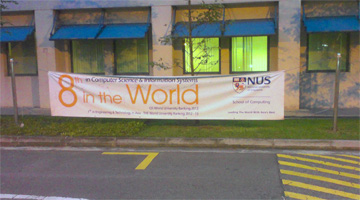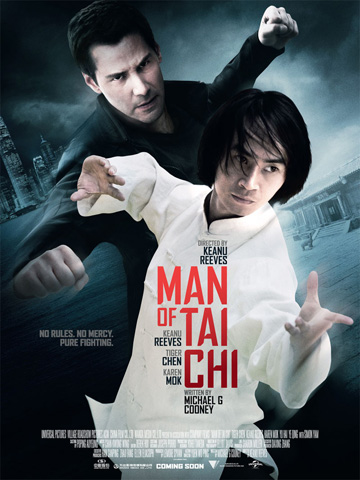|
| |
|
| |
|
|







|
|
TCHS 4O 2000 [4o's nonsense] alvinny [2] - csq - edchong jenming - joseph - law meepok - mingqi - pea pengkian [2] - qwergopot - woof xinghao - zhengyu HCJC 01S60 [understated sixzero] andy - edwin - jack jiaqi - peter - rex serena SAF 21SA khenghui - jiaming - jinrui [2] ritchie - vicknesh - zhenhao Others Lwei [2] - shaowei - website links - Alien Loves Predator BloggerSG Cute Overload! Cyanide and Happiness Daily Bunny Hamleto Hattrick Magic: The Gathering The Onion The Order of the Stick Perry Bible Fellowship PvP Online Soccernet Sluggy Freelance The Students' Sketchpad Talk Rock Talking Cock.com Tom the Dancing Bug Wikipedia Wulffmorgenthaler |
|
bert's blog v1.21 Powered by glolg Programmed with Perl 5.6.1 on Apache/1.3.27 (Red Hat Linux) best viewed at 1024 x 768 resolution on Internet Explorer 6.0+ or Mozilla Firefox 1.5+ entry views: 168 today's page views: 687 (118 mobile) all-time page views: 3400672 most viewed entry: 18739 views most commented entry: 14 comments number of entries: 1228 page created Sat Jul 12, 2025 23:29:40 |
|
- tagcloud - academics [70] art [8] changelog [49] current events [36] cute stuff [12] gaming [11] music [8] outings [16] philosophy [10] poetry [4] programming [15] rants [5] reviews [8] sport [37] travel [19] work [3] miscellaneous [75] |
|
- category tags - academics art changelog current events cute stuff gaming miscellaneous music outings philosophy poetry programming rants reviews sport travel work tags in total: 386 |

| ||
|
Heartwarmers Of The Week There are still hero(in)es in this world N.B. AJ came out very well indeed, and is the reigning WWE Divas Champion. Oh, and there's Henrikh Mkhitaryan. A more soulful welcome could scarcely be imagined. The 0xc00000e9 Truth  This is what three years' programming experience gets you (Source: Facebook) Only too true when it comes to coding. Cleaned up what should be the final final bug in my current project, which manifested itself as a crash after several hours. Now, this sort of error is likely among the most feared by developers, moreso with OpenCL kernels that don't quite lend themselves to debugging, and the C++ trace pointing to somewhere completely alien. The usual change-and-check wasn't going to be enough with the turnaround time, but I did at least know that the multiple instances died within a minute of each other, going by the log file timestamps. This did at least near-certainly eliminate the kernel logic itself, since the instances were running on different data, and I suspected heat woes, but the cards had been humming along at an acceptable steady state temperature all along. With nothing else to go on, I fell back on Googling, and after a short diversion or two came upon a promising link. That was for nVIDIA, but going down this line quickly yielded a more in-depth explanation - I had expected the clEnqueueNDRangeKernel function to return an event object to my single reference as promised, but hadn't realised that it had to store that (soon-to-be-orphaned) event in memory too! Well, they don't take up much space individually, but a few million of them add up, which explains the delayed doom. Returning to the comic, it is rather uncommon for programmers to put together a moderately-complex system without running into any errors on the first try, and older hands would therefore strongly suspect that this "perfection" is more a reflection of the application not being adequately tested, than any supernatural skill on their part. Hey, how many writers survive the proofreader unscathed? Oh, by the way, this went up in front of the faculty:  Well, if they say so... (I mean, we're probably okay, but eighth?) The Impenetrable Shield Following on last week's piece on the nation's favourite investment firm, it turns out that one of its majority holdings, SMRT, has labelled its latest quarterly net loss of some S$12 million "unsustainable" just a couple of months ago. Um, didn't they get a free billion bucks like last year? At least Las Vegas is going about it the other way. It seems that some remain under the delusion that the injection was actually in exchange for increased shareholding, which is emphatically not the case. Well, as if any of that matters - one way or another, the golden touch will manifest, and our subsidized private public transport provider will be back in the green. What less can we expect from a firm that "has shown that it can spot mega investment trends and act on them in a big way when convinced that they will help the company reap benefits" (in SPH's words, not mine)? Without pausing to catch breath, the article then goes on to reveal that they made 8.86% in total shareholder return, conveniently neglecting to mention that basic stock indices have outperformed that rather handily; in other words, we could have just plonked the funds in several major established markets and likely done better, especially less the management fees involved. While the inferiority of managed funds seems to be accepted wisdom, I suppose those paychecks aren't gonna write themselves. In fact, the journalist goes on to belatedly admit that their five-year total shareholder return of 3% was far beneath the 9% expected, and not a shade on the mind-blowing 20% achieved between 1984 and 2004 (when it was still mostly locally-based, recall), which leads one to wonder where the spotting mega investment trends bit came into it. Not one to miss the boat, the media continued by blasting that more marriages have been registered, without ever dropping the hint that the number of people in the relevant age groups has been steadily increasing too. I expect many more such records to be set in lockstep with our exploding population. Very interestingly, the TODAY paper next led with "MediShield: Young people willing to pay higher premium", with this assertive headline based on... a straw poll of 50 people aged between 21 and 40. Apparently, when confronted by a gaggle of reporters plastered with media symbols, thirty-eight of the fifty unfortunates thought it best to give the expected answer. Well, considering what happened the last time the completely neutral local press attempted to play pollster with 50 people, with their 59%-to-41% call for the PAP in Punggol East winding up to be a 43.71%-to-54.52% defeat in reality, I would have expected them to have acknowledged the limitations of their self-admitted unreliable non-scientific methodology, instead of flagrantly expanding the debacle from one constituency to the entire nation! Anyway, reading between the lines, Herr Ahm sees this as simply a leadup to "CPF minimum sum to again increase at a rate several times that of average wage growth" soon, ignoring the housing bubble lesson of "making more money available might simply chase treatment prices up". Alive! Alive! Since it was held just next door, I decided to sit in on a U@live session with Minister K. Shanmugam on Friday night. The news brief of the event is out, but the full video appears to be still in development, so I will recount what I can from memory. The emcee was a right charmer (and happened to be the Minister's secondary school friend), and began by throwing a wrench into the schedule - instead of beginning with the ten-minute speech, he first fielded a couple of questions: on whether the incumbents are thinking of a Shadow Cabinet, and why there is even a Minister of Law for an independent judiciary in the first place. If I remember correctly, the answer for the latter was that the institution was inherited from the British, though of course in other systems, such as Down Under, the top law officer also sits in the Cabinet, which was not desired; as to a Shadow Cabinet, I thought it was clearly not under the incumbents' purview, and anyhow some of the Opposition have had a go. The presentation then began proper, with slides reminding all present that only 31% pay income taxes (with zero mention of the GST), that we're spending more than we're taking in (roughly S$55b in, S$60b out, but thankfully made up for with S$7b in investment returns), and that our aging demographics is a huge problem, with the much-maligned White Paper's support ratio graphic trotted out, skipping over how our past ratio should more rightly be regarded as a one-off bonanza. As statistics on the low fertility rate in other major Asian cities (why are we comparing ourselves to the bottom here?) and high proportion of out-of-wedlock births in places with replacement or better fertility (an implicit refusal to recognize that more native births is possible any other way?) followed, I was wondering if I had heard all this before, and indeed I had. The looming shadow of competition was then rolled out - Bangkok as a more natural air hub (actually, Xinjiang or north India would be even more ideal going by geographical location alone), Kuala Lumpur pouring a billion dollars into their finance industry (please, we palm that sort of spare change off to our bus operators without strings attached), and China bypassing us with an oil pipeline through Burma (notably not Myanmar on the map shown), though I'm not sure how much more secure they expect that to be (personally, I would be more concerned about the Kra Canal, but then we'd probably just buy a stake if it ever happens, going by recent behaviour), and if their rich coastal ports would get behind that effort. Which transitioned nicely into the anticipated pitch of we can't slow down (left unsaid: mostly on importing people) because others won't... eh, they just did. I'll go briefly through most of the following questions and responses here: On the government predicting successful industries... no they can't (note: but do seem to try a lot). On legislating a maximum number of working hours... no (agreed here, but enforcing overtime pay is another thing). On our best resource... people (standard answer). On an unemployment safety net for our best resource to encourage entrepreneurship... no but... no. On quality of life, we can't measure it, be less materialistic (which may be true, but somehow kind of disconcerting under these circumstances). On productivity... we're tryin'! we're tryin'! My followers, happiness ultimately comes from within! Next, a couple of the more interesting answers in more detail. It was asked why the Attorney General's Chambers has the discretion to choose when to prosecute. Cribbing from the event website here: "The rule of law should be such that the law is applied in every situation and not up to anyone to decide which instances is applied and which instances the law isn't. That is equality before the law. Why does the AGC have jurisdiction to choose when to persecute and when it doesn't? That brings the law to disrepute. MDA, the sedition law and 377A all fall in this category. If a law needs to be more specific, it needs to be amended. If a law needs to be struck down it should be. Ambiguity allows the law to be abused." The counter was by concrete one-sided appeal to pity: A starving man stole a sandwich. Why are you so hard-hearted as to insist we charge him? A poor scholarship winner did a stupid thing. Why are you so cruel as to ruin his future? And if guidelines on discretion are set, they can be gamed (no mention on the specific cases of MDA, sedition or 377A, etc) Of course, this is a matter of degree, as are so many things; as noted previously here, most laws admit a wide latitude of sentences anyway, and for some offences like jaywalking, extensive implementation would be wholly impractical. Here, I suppose, is where "pick good guys" and "good politics" (i.e. stability above all at any cost) enters in force, with the Minister adding that a baby should choose to be born in China, a one-party state, rather than the multi-party democracy of India. The Minister had at least noted that almost all dictatorships and one-party states had crumbled, but that democracies had their own issues (but are at least still chugging along). At this point, a Facebook conversation on one of my former prof's Wall might be mentioned. One fellow stated, not wholly illogically, that leaders in a democracy wind up undermining their opponents and brainwashing their citizens to maintain power, while a dictator does not have such a problem because he owns everything, and therefore can put all his effort towards improving his country where war is impractical. When two of the few remaining classic dictatorships in North Korea and Cuba were mentioned, the rejoinder was then that they were not true dictatorships because Kim Junior II still has to worry about losing power, which brought the obvious question about where on this green Earth has dictatorship not ever had to concern itself with that. His ideal fantasy picture of an enlightened dictatorship threatened, the fellow then proposed a constitutional dictatorship backed by a sworn military, at which another participant commented on the pointlessness had he compared this magic ideal dictatorship with a magic ideal democracy, and proposed more education on public policy, which was rejected with the observation that more education brings more strife in broken democracies (note non apples-to-apples again), and that fixing opponents (hmm) and brainwashing citizens is the way to go, with the inevitable final destination being a peaceful, prosperous and progressive dictatorship. Now where do I even begin?  STRENGTH THROUGH UNITY! UNITY THROUGH FAITH! (Source: smithsocksimon.net) One could first argue on the basis of practical observation, and as the good Minister noted, there simply aren't many, if any, successful dictatorships around. Sure, one might personally have a preference for certain characteristics of dictatorships, but I would suspect that the net flow of people under completely free migration would be overwhelmingly from more-autocratic to more-democratic societies because, on balance, they simply work better in real life. More specifically, as was grudgingly admitted, all leaders have to worry about losing power, and adjust their behaviour accordingly. One might argue that a benevolent superman philosopher-king could do the best for his land. Let us even assume, for the purposes of this discussion, that this messiah always knows what is good, and always does the greatest good for the greatest number, or if he has a different standard, then that standard is certainly right. The immediate question is then - how would this saint get installed as dictator-for-life in the first place? If the answer is "by acclamation" (which already presumes a knowledgeable citizenry that can differentiate between true ability and hot air), as with the legendary sage-kings of China, then wouldn't democracy work just as well, since they would vote for him as easily as elevate him to the throne, and moreover respect his wisdom without recourse to absolute authority? Therein lies the first challenge - while democracy of course does not guarantee competence, dictatorship often does not even bother to pretend overly. The number of factors that has to come together - an overwhelmingly able tyrant that also has his people's best interests at heart and somehow wrests control - is exceedingly improbable to begin with. Historically, an unsettling number of monarchs (who were seldom total dictators, as we shall note) were well in over their heads, and were often significantly more dedicated to various worldly pleasures and not having a dagger in their back, instead of the betterment of their state, certainly a far more abstract ideal. This actually makes a lot of sense in the purportedly hard-boiled worldview of our dictator-supporter, as the additional personal rewards of a well-run dictatorship, over that of even a horribly-run one, are tiny indeed.  Would my Dom Pérignon 1926 taste any better if a million less of my people had to eat grass for breakfast? Decisions, decisions. (Source: Kim Jong Il Not Looking At Things Blog) Before continuing, one might observe that there is actually no true democracy or true dictatorship, as the twain lie on two ends of a continuum. Taken to an extreme, democracy becomes ochlocracy, or mob rule, which I suppose is the straw man being battered here, but is not what is commonly understood as democracy, which is generally representative. As nothing can get done if everybody has to stick a foot in everything, the clear thing to do was to have people pick one of their number to forward their interests - essentially, as mini-dictators for a specified term of office. Now, there are many variants, certainly - in the most successful existing democracy, these little dictators in turn choose their Big Dicktator - but the point is leaders in democratic systems are in many senses effectively dictators anyway, but perhaps most importantly of all, risk is spread out in this manner. Or: A truly enlightened leader might not be able to operate at 100% in a democracy with built-in checks and balances, but then 70% of his ability is still much preferable to having a total tinpot strongman pillage the place at 100% of his ability for decades on end, without any half-plausible mechanism of getting rid of him. It is true that in these basket cases, there is often democracy-in-name with rigged elections the norm, but this only proves the importance of the real deal. On a parting note for this topic, it can be noted in the other direction that all dictatorships are also democracies in a way - it is only that elections are infrequent, but when they do occur, they tend to be very hands-on, and quite messy indeed. ...And then the Minister reiterated that public housing is subsidized, it's not left pocket to right pocket (possibly true as it's more accurately your pocket to their pocket - which reminds me, how can Temasek possibly guarantee that their current reserves exceed their past reserves every five years, other than by leaving past reserves completely untouched, as depressions can well last longer than a single government term?), and the proceeds are going into the reserves "for the future". Well, nothing to see here, move along. The session concluded with the hot button of Ceilinggate, with the Minister having the decency to be initially reluctant to comment, before replying along the lines of "all the documents are there, you can decide for yourselves", and that the incumbents would expect to be held accountable if they were the ones who had lied. Take-home message: you can ask for millions in salary, overspend by S$300 million and clean give away a billion to a private entity as long as you're open about it, but heaven help you and your integrity if you skimp on postage or scaffolding for spring cleaning. By the way, what came of the AIM saga?  Important Disclaimer: This poster advert for a recently-screened flick has totally no relation to the content of this blog post (Source: comicbuzz.com) Next: Call To Hams
|
|||||||
 Copyright © 2006-2025 GLYS. All Rights Reserved. |
|||||||